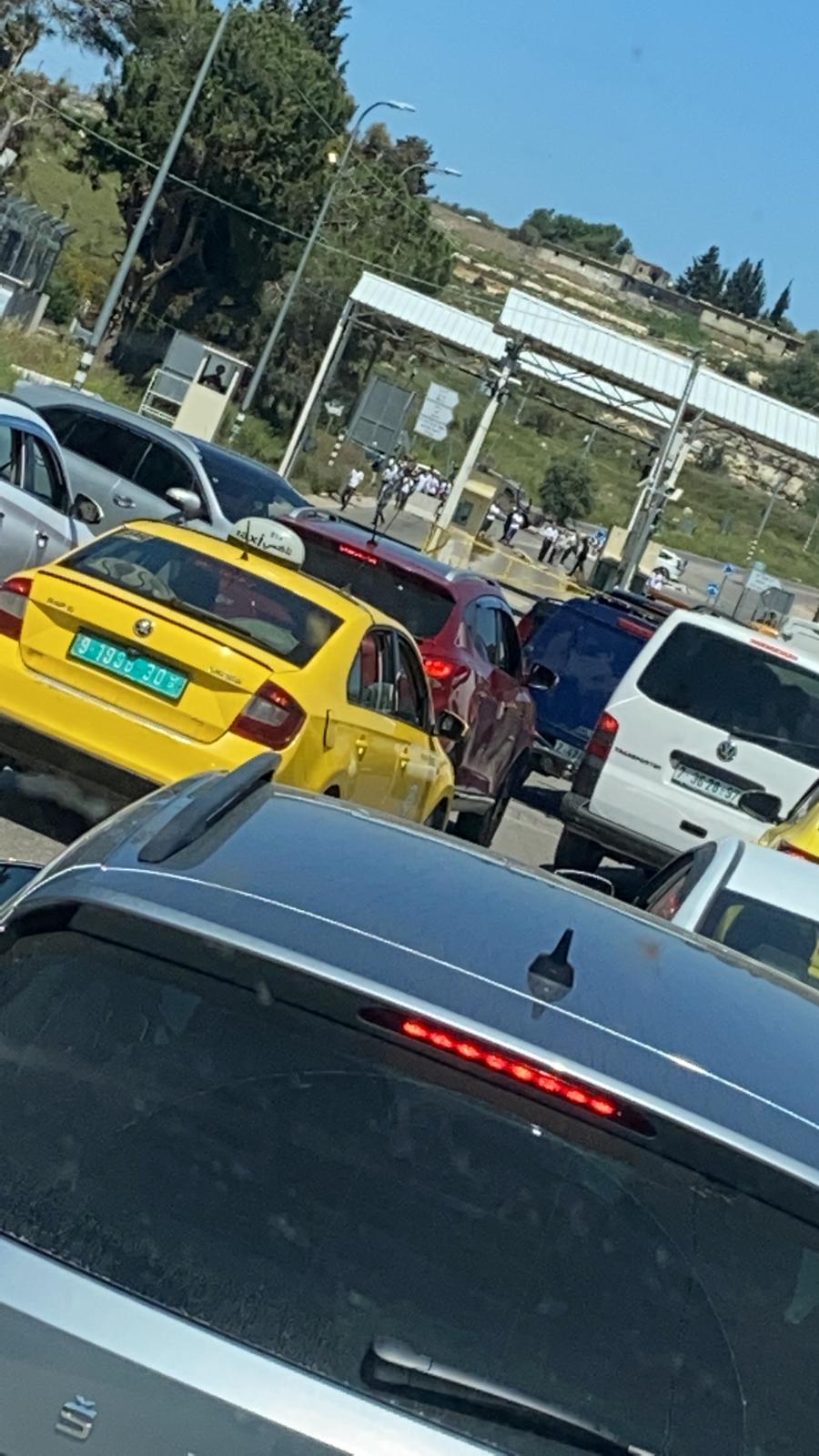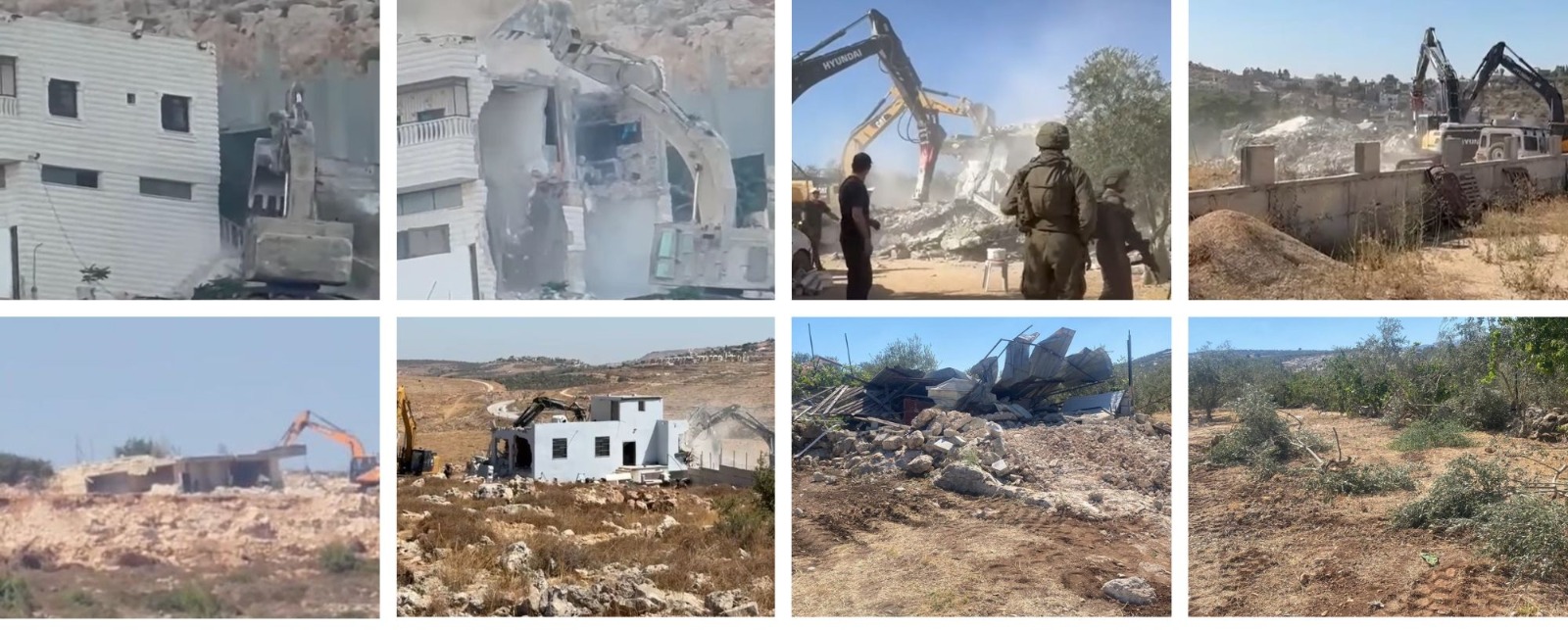Important News
- Three Palestinian civilians, including infant, in Israeli airstrike targeting residential apartment in Gaza
-

- Israel forces detain Palestinian child, deliberately run over livestock in northern Jordan Valley
-

- UPDATE: Israeli forces demolish two Palestinian homes, uproot trees in Ramallah and Jerusalem
-

- Colonists damage internet equipment near the Jordan Valley
-

- Israeli occupation forces demolish five homes northwest of Ramallah
-

- Israeli occupation forces demolish a house in Silwan
-

- The US National Education Association votes to ban the teaching or use of curricula from pro-Israel organizations
-

- WFP says needs in Gaza are 'greater than ever' as hunger spreads
-

- Colonists close road near Nablus with earth mounds
-

- Hundreds protest Israel's Netanyahu's visit to Washington
-

- Gaza: 17 Palestinians killed in Israeli bombing of areas
-

- Israeli forces demolish house near Nablus
-

- Weather: Hot conditions continue, no change in temperature
-

B'Tselem: Israeli Soldiers Use 2 Palestinian Minors as Human Shields
TEL AVIV, March 8, 2007 (WAFA)- B'Tselem revealed that during the army's operation in Nablus in late February, Israeli soldiers used two Palestinian children, a fifteen-year-old boy and a eleven-year-old girl, and a twenty-four-year old man as human shields.
In a press release B'Tselem said the use of human shields constitutes a flagrant breach of international humanitarian law and is explicitly and clearly prohibited by Israeli military orders.
B'Tselem wrote to the Judge Advocate General and demanded that he immediately order a Military Police investigation into the matter.
The military operation, which was given the name "Hot Winter," began on 25 February. The Israeli army imposed a complete curfew for more than two consecutive days on the Old City (the Casbah), in which tens of thousands of Palestinians live. One person, who went up to his roof during the curfew, was shot and killed by soldiers, and his son was wounded.
According to the testimonies, on the first day of the operation, around five o'clock in the morning, soldiers came to the house of the 'Amirah family, in the Old City , and removed all the occupants from the house and took them to a nearby house, where other Palestinians were also being held. Then the soldiers ordered one of the family, 15-year old 'Amid to accompany them in their search of three other houses. According to 'Amid's testimony, the soldiers pushed him with the barrels of their rifles and forced him to enter rooms of the house in front of them, open cabinets and empty out the contents, and open windows. In one instance, according to the testimony, a soldier shot several shots into the room.
Other soldiers took 'Amid's cousin, Samah 'Amirah, 24, and used him as a human shield in a similar fashion. Part of this incident was recorded on by AP television cameras and broadcast both on Israeli television and abroad. 'Amirah was forced to enter every room in his house, while soldiers followed him. Afterwards a soldier would shoot a round of bullets into each room.
In another incident, which took place on the morning of 28 February, also in the Old City , soldiers took control of the Dadush family house and locked the six members of the family in one room of the house. Throughout the day, soldiers interrogated all of the members of the family about the location of armed Palestinians who fired at soldiers in the area during the operation. Around eight o'clock at night, soldiers forced eleven-year old Jihan Dadush to lead them twice to one of the adjacent houses that she had mentioned to the soldiers in response to their questions. The second time, when they arrived at the house, the soldiers forced her to open the door and enter in front of them. After combing the inside of the house, the soldiers returned her to her house.
In her testimony to B'Tselem, Jihan said that after the soldiers left, "I was shaking with fear. I was afraid they would kill me or put me in jail. The only thing I wanted to do was sleep. I am afraid that the soldiers will come back and take me."
The picture that emerges from the testimonies, and particularly the description of the firing into the rooms in the testimonies of 'Amid and Samach 'Amirah, indicate that the soldiers feared the houses they searched hid armed militants or that explosives had been planted in them. In other words, the mission the two minors and the adult were forced to conduct undoubtedly included an element of danger and it seems clear that the soldiers were aware of this.
In its letter to the Judge Advocate General, B'Tselem pointed out that this was the fourth time since June 2006 (when "Operation Summer Rains," in Gaza , took place), that the organization had documented Israeli soldiers' use of Palestinian civilians as human shields.
As far as B'Tselem knows, in only one of these cases did the JAG order a Military Police investigation. That investigation has not yet been completed. In light of these cases, B'Tselem expressed its concern that the military order prohibiting this practice is not property communicated to soldiers, and that the delay in investigating these incidents conveys a message of lenience in the military's treatment of soldiers who engage in such practices.
(21:00 P) (19:00 GMT)










